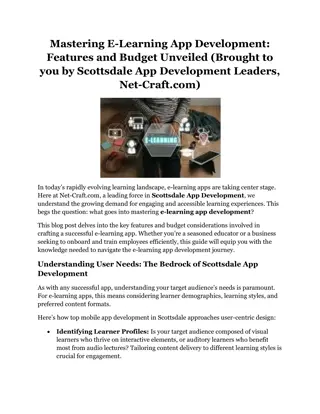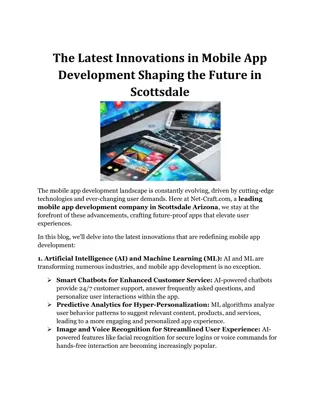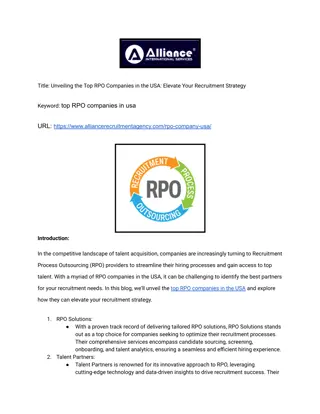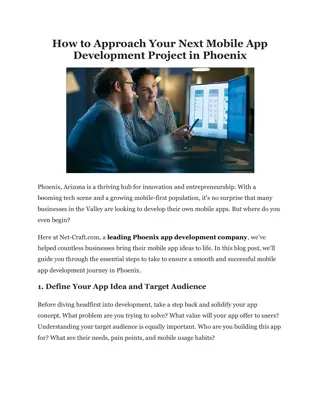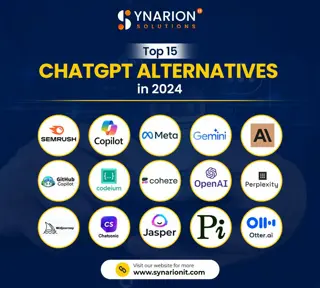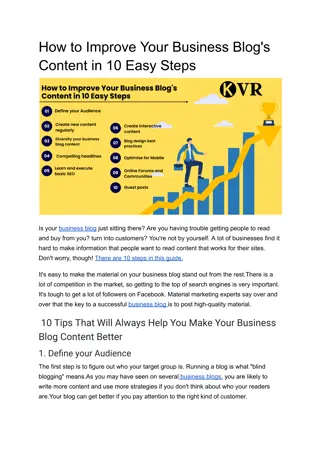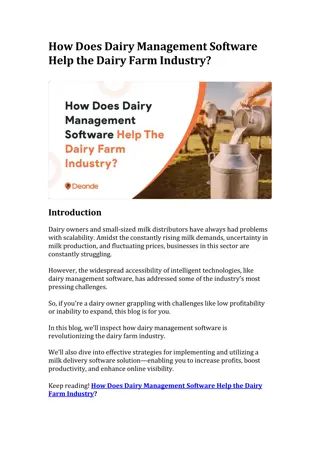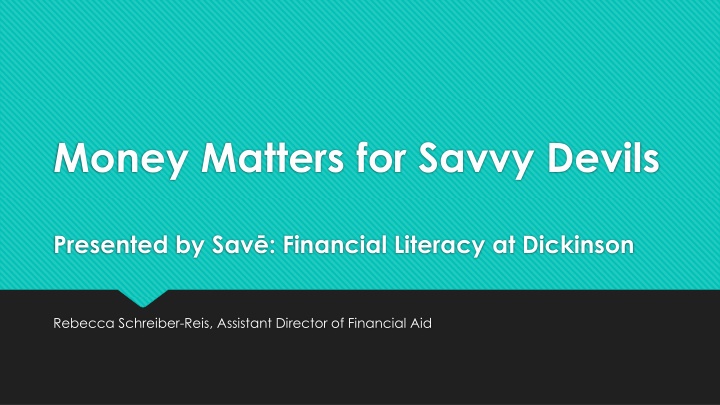
Financial Literacy Tips for Better Money Management
Discover essential financial literacy tips to effectively manage your money, including budgeting guidelines, tracking expenses, choosing banking options, understanding credit, and more. Empower yourself with practical advice to achieve your financial goals and secure a stable financial future.
Download Presentation

Please find below an Image/Link to download the presentation.
The content on the website is provided AS IS for your information and personal use only. It may not be sold, licensed, or shared on other websites without obtaining consent from the author. If you encounter any issues during the download, it is possible that the publisher has removed the file from their server.
You are allowed to download the files provided on this website for personal or commercial use, subject to the condition that they are used lawfully. All files are the property of their respective owners.
The content on the website is provided AS IS for your information and personal use only. It may not be sold, licensed, or shared on other websites without obtaining consent from the author.
E N D
Presentation Transcript
Money Matters for Savvy Devils Presented by Sav : Financial Literacy at Dickinson Rebecca Schreiber-Reis, Assistant Director of Financial Aid
Who Needs a Budget? You need a budget. Ensure you have enough to afford essentials. Protect yourself from long-term debts. Create a plan to reach financial goals. Allow yourself to have fun!
50/20/30 Rule Budgeting Guidelines 50% of income (or less) toward essential expenses (Needs) 20% of income (or more) toward obligations and financial planning (Goals) 30% of income toward desired standard of living (Flexible) Needs Goals Flexible
The Approach: 1. List all resources available to you (paychecks, gifts, scholarships, loans). 2. Inventory your expenses- Needs first, then Goals. 3. Subtract your monthly Needs and Goals expenses from your monthly resources, to determine your total available Flexible income. 4. Decide how you will use remaining income. 5. Find out if your current budget falls within the suggested 50/20/30 rule. 6. Keep track of spending throughout the month, or use another method to prevent you from going over-budget.
Where Can I Keep My Money? Savings accounts Holding zones with varying interest rates Specialty savings: Certificates of Deposit (CD), Money Market Multiple accounts can help you organize your finances Checking account Revolving use- deposit your income, pay your daily living expenses Find a tracking method that works for you Online banking, Excel spreadsheet, paper ledger
Types of Banking Cards ATM card Debit Card - Requires a Personal Identification Number (PIN) - Will have a Visa or Mastercard logo sticker - Typically for use at ATMs only - Connected to your checking account - Connected to checking and/or savings - Can be used in-person and online - Not for online purchases - May require a signature
What is Credit, and How Can I Get Some? - Having good credit refers to your creditworthiness and credit history. - Lenders consider your income and resources when offering you the opportunity to borrow money. - Your credit impacts many areas of your life ability to rent or buy a home, interest rates offered for loans, job qualification in some fields.
Revolving Installment Open Types of Credit Accounts Credit Card, HELOC Car Loan, Student Loan Mortgage Utilities bills, Cell phone account - Balance carries forward monthly - Set repayment schedule - Full balance due every month - Terms are typically clear and less variable - Interest calculated based on balance due - Penalties for late payments- including loss of service Terms will include: available credit; interest rate; penalties; late fees; consequences for default; who is responsible for your debt if you pass away
How is My Credit Score Calculated? FICO score Total balances due versus total credit available Are payments on-time, or late? Pro Tip: Check your credit report every 4 months, for free, to spot errors and catch identity theft.
Should I Get a Credit Card? Pros Cons Temptation to spend beyond current financial limits High interest rates can bury you in long- term debt Carrying high balances will lower your credit score Missed payments may involve steep penalties High credit card debt is a significant factor in many bankruptcies Helps you build your credit score Some offer perks (airline miles, cash back rewards, gift cards) Protections in cases of fraud or theft Can be used most places, including many overseas locations May be a helpful backup in an emergency situation
Preventing & Managing Debt - Opt for a secured credit card to build credit history with minimal risk. - Pay on-time or ahead of schedule. - Pay two to three times the minimum payment. - Consolidate lines of credit- transfer balances to minimize your monthly payments. - Pay off lowest balances first, then apply that monthly payment to the next- highest balance. Snowball payments until you re making large payments on the biggest debts. - Call and ask for a lower interest rate!
When, Why, and How: Savings, Explained 1.Emergency Fund 2.Savings Accounts 3.Retirement 4.Investments
Emergency Funds & Savings Accounts Emergency Fund Savings Accounts Three to nine months of expenses Primary savings for special events, long- term goals, and financial freedom Target range = Use your budget to determine minimum monthly expenses Accessible ( liquid ) funds Consider a savings account at a secondary financial institution Open additional savings accounts to keep goals organized Save it and forget it. Vacation account Holiday account Home down payment account Pro Tip: Set up an automatic transfer from your checking account to an attached savings account, to occur with every new paycheck.
Retirement and Investing Retirement Investing Individual Retirement Account (IRA) option when your employer isn t contributing Wide variety of options Phone apps and online platforms allow you to participate in the stock market without huge costs Contribute as much as you are able to an employer-sponsored plan Consider your age, funds available, and comfort with risk when comparing investment options Matching benefits will pay off in huge ways over a career! Pro Tip: Take advantage of specialized savings accounts from employers such as Health Savings Accounts and Flexible Spending Accounts for tax-reducing benefits




